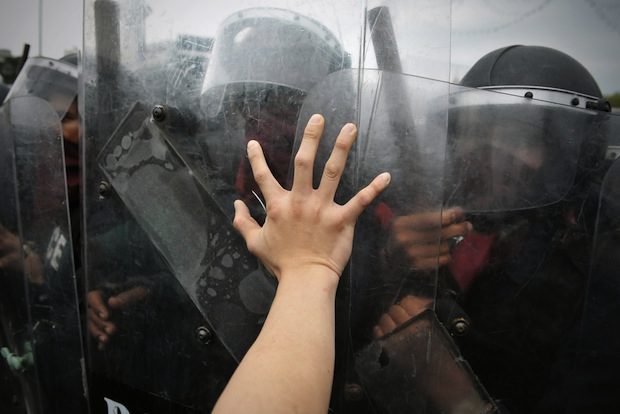A Disturbance in the Force

Ross Douthat takes the measure of 2015. Excerpt:
Through the dot-com bust, 9/11, the Iraq war, and the financial crisis, it was striking how consensus held, how elites kept circulating, how quickly populist movements collapsed or were co-opted, how Washington and Brussels consolidated power even when their projects failed. No new ideological movement, whether radical or reactionary, emerged to offer the alternative to liberalism that fascism and Marxism and throne-and-altar traditionalism once supplied. And no external adversary, whether Putinist or Islamist or Chinese, seemed to offer a better way than ours.
Here in the dying days of 2015, though, something seems to have shifted. For the first time in a generation, the theme of this year was the liberal order’s vulnerability, not its resilience. 2015 was a memento mori moment for our institutions — a year of cracks in the system, of crumbling firewalls, of reminders that all orders pass away.
I agree with this analysis, you will be unsurprised to learn. Here at the end of the year, thinking about the book I’m about to start writing after the first of the year, I am thinking about this in religious and cultural terms. Historian Edward Watts’s remarkable 2015 book The Final Pagan Generation, which I finished last week, is no barn-burner, but it makes a strong impression on how little the elite pagan Romans in the fourth century understood their own times. They thought it would last forever. And, as Prof. Bill Tighe points out, citing a lecture by the eminent historian Prof. Peter Brown, even the Christians of that era didn’t understand what was happening — that is, how the certainties of the pagan Roman Empire in the West were in collapse. Not even Constantine, the first Christian emperor, understood the deeply destabilizing forces at work in his own realm.
Is this us? For me, the most important part of our society is its religious sense and structure of thought. It is impossible for anybody to say with certainty what is coming next. Are Benedict Option people like me paranoids, or are we canaries in the coal mine? Obviously I believe the latter, and am about to begin making the case at a deep level — and, in turn, advancing an argument for a radical response. I do not think I am wrong, but yes, I could be wrong. Eight years ago or so, I was convinced that peak oil was upon us. I was wrong then, and I will undoubtedly be wrong in the future.
What if I’m right, though? Here’s Douthat’s conclusion (by “liberalism,” he’s talking about the Western order):
It’s still wise to bet on the current order, in other words, and against its enemies and rivals and would-be saboteurs.
But after liberalism’s year of living dangerously, for the first time in a long time it might make sense to hedge that bet.
I don’t think it’s safe at all to bet on the current Christian order, as opposed to liberal democracy and capitalism. Observant Christians today had better ask themselves if they can afford to carry on as if the center will hold. I see no reason — not one — to believe that it will.
Subscribe for as little as $5/mo to start commenting on Rod’s blog.